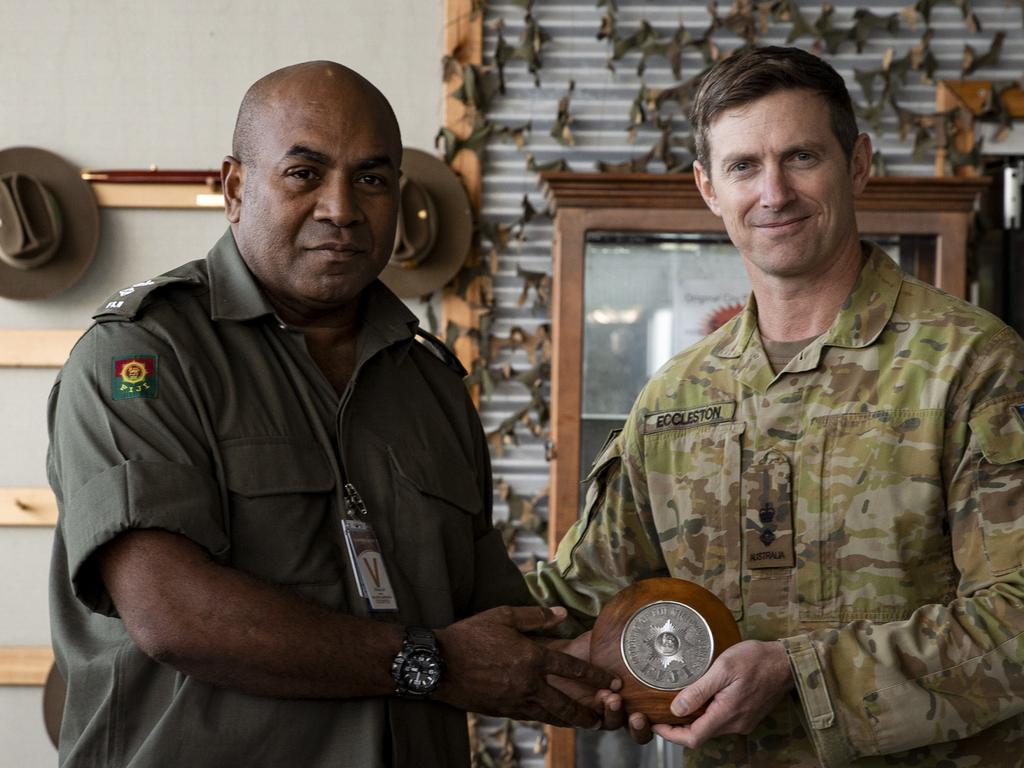AFP should investigate accused Fijian torturer commanding Australian troops: international lawyer
Australia must abide by its obligation to investigate and if necessary arrest the Fijian colonel accused of torture but now deputy commander of the ADF’s 7th Brigade, says lawyer.

The Australian Federal Police should launch an investigation into allegations of torture against the deputy commander of the Australian Army’s 7th Brigade, Fijian Colonel Penioni (Ben) Naliva, and if necessary arrest him, according to a top international law expert.
University of Sydney Challis Chair of International Law Ben Saul said Colonel Naliva had been credibly accused of torture by both victims and a United Nations Special Rapporteur and should be suspended pending a criminal investigation.
“If you’ve got someone who is allegedly an international criminal in Australia, you’d expect that the AFP would do their job and investigate it,” Professor Saul said.
“The appropriate thing to do at this point, given the credibility of the allegations and their severity, would be to stand him aside pending the completion of a full investigation.”
Under the Convention against Torture, Australia has binding international treaty obligations to investigate alleged torturers present in its territory and arrest or otherwise ensure their presence for proceedings, Professor Saul said.
An alleged torturer would either be prosecuted in Australia or extradited to another country requesting extradition.

Last week, The Australian revealed Colonel Naliva was awarded the prestigious position in the 7th Brigade despite allegations he was involved in the violent beating of detainees, with former Fiji MP Sam Speight claiming the soldier tried to force an M16 rifle barrel into his anus during an interrogation.
In another case, the UN Special Rapporteur named then-major Naliva in a 2011 report to the Human Rights Council as being involved in the savage beating of Suva businessman Ben Padarath that left him unable to walk.
“If Colonel Naliva is cleared, then of course, he could resume his position at that point,” Professor Saul said.
“But when you have such a dark cloud hanging over you and when you’re in a position of responsibility in which you could have people in detention under your authority, the public and the integrity of the military system would require that a person like that step aside for the time being.”
Professor Saul, who has taught law at Oxford, Harvard and The Hague, is also the UN Special Rapporteur on Human Rights and Counter Terrorism, but stressed that he was speaking in his capacity as an international law expert, not in his UN role, as this case did not involve terrorism.
“The critical relevance here is that you’ve got somebody who is alleged to be a torturer, commanding combat forces which could be detaining people in armed conflict,” he said.
“That raises really serious concerns, not only about failure to investigate and prosecute serious international crimes, but also about the kind of moral qualities you want in a senior military commander.
“If a police officer is accused of torture, you don’t wait until charges have been laid, and the guy has been arrested.”
Professor Saul said the alleged conduct “absolutely” fell within the definition of torture and had been a crime under Australian federal law since 2010.
“A public official, seriously beating someone up in custody, as a form of punishment squarely fits within the definition of torture.
“It’s a federal crime which has universal jurisdiction attached to it, so we can prosecute it wherever it happens, including in Fiji, even where it only concerns Fijians.”

If the AFP and Commonwealth Director of Public Prosecutions thought there was a case to answer it would require the consent of the Attorney-General to proceed.
Attorney-General Mark Dreyfus has stated in previous cases, including those such as whistleblower David McBride, that he would not interfere in the independent conduct of the legal system.
“So if he’s true to his word, you would expect him not to prevent that prosecution proceeding if the police and the DPP thought there was a case to answer,” Professor Saul said.
Colonel Naliva would not be able to claim immunity because there is no immunity recognised for state officials for the international crime of torture.
But Australia has not had a dedicated international crimes investigation unit in the Australian Federal Police or the DPP since the 1980s.
The Office of Special Investigator was created specifically to investigate and prosecute war crimes by Australian troops in Afghanistan.
“This has long been a systemic gap in Australian law enforcement: that we don’t give the attention that is deserved to international crimes, which at the international level, and under domestic law, we’ve signed up to to investigate and prosecute,” Professor Saul said.
“But we don’t seem to devote the resources, expertise and time to doing that.”







To join the conversation, please log in. Don't have an account? Register
Join the conversation, you are commenting as Logout